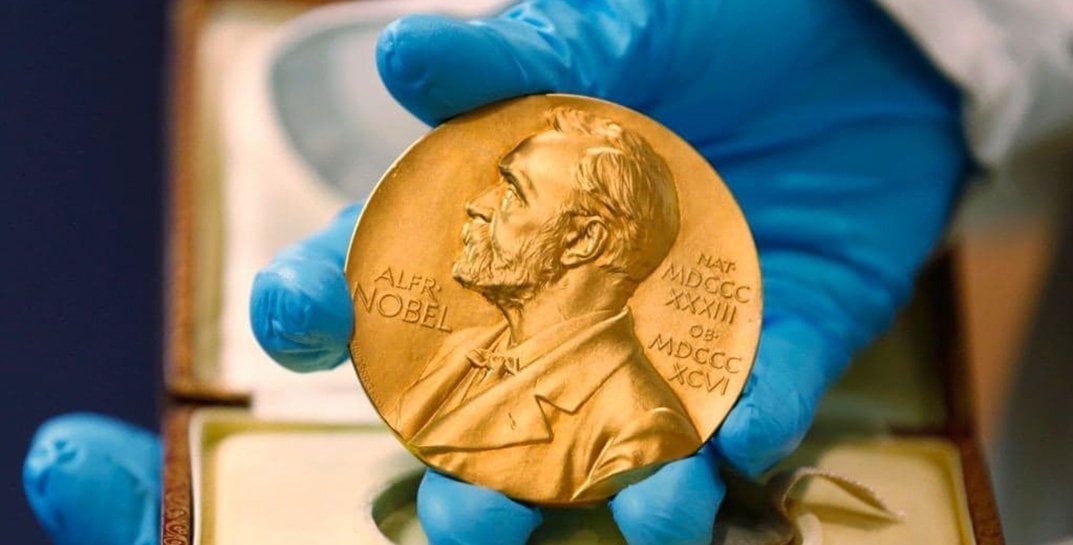Nobel Prize awarded to scientists for the discovery of temperature and touch receptors

On Monday, October 4, the Nobel Prize was opened in Stockholm. Traditionally, the first awards went to researchers for discoveries in the field of physiology and medicine. The award winners are scientists David Julius and Paul Pataputian for their work on finding receptors for temperature and touch.
Julius, together with his team, discovered the TRPV1 receptor, which is responsible for the susceptibility to the active component of red pepper, back in the late 90s. In the course of studying the physical properties of the receptor, the scientist found that it is sensitive to temperature, and its excitation occurs at the same temperatures that cause pain. The result of the work gave impetus to the search for more receptors. Julius and Pataputian then independently used menthol to identify the TRPM8 cold-responsive receptor. This, in turn, made it possible to find new ion channels and understand the temperature ranges within which other receptors operate.
Julius's work made it possible to understand how differences in temperature can activate electrical signals in the wrong system. Pataputian, on the other hand, paid more attention to mechanical sensitivity and, as a result, found two receptors that respond to touching neurons and received the designations Piezo1 and Piezo2. A little later, it was discovered that these receptors are also responsible for the perception of the mutual and absolute location of body parts and the transmission of signals in the skin and between organs.
Last year, the award went to Harvey Alter, Michael Houghton and Charles Rice for their discovery of the hepatitis C virus. Two years earlier, William Kalin, Peter Ratcliffe and Gregg Semenza were honored for their research on cell adaptation to a lack of oxygen. In 2018, American and Japanese scientists James Ellison and Tasuku Honjo were awarded for their activities in the field of cancer therapy.
In the near future, during the so-called "Nobel Week", the winners in the remaining nominations will also be announced. The end of the award will take place on October 11.
BREAKING NEWS:
— The Nobel Prize (@NobelPrize) October 4, 2021
The 2021 #NobelPrize in Physiology or Medicine has been awarded jointly to David Julius and Ardem Patapoutian “for their discoveries of receptors for temperature and touch.” pic.twitter.com/gB2eL37IV7
Julius, together with his team, discovered the TRPV1 receptor, which is responsible for the susceptibility to the active component of red pepper, back in the late 90s. In the course of studying the physical properties of the receptor, the scientist found that it is sensitive to temperature, and its excitation occurs at the same temperatures that cause pain. The result of the work gave impetus to the search for more receptors. Julius and Pataputian then independently used menthol to identify the TRPM8 cold-responsive receptor. This, in turn, made it possible to find new ion channels and understand the temperature ranges within which other receptors operate.
Julius's work made it possible to understand how differences in temperature can activate electrical signals in the wrong system. Pataputian, on the other hand, paid more attention to mechanical sensitivity and, as a result, found two receptors that respond to touching neurons and received the designations Piezo1 and Piezo2. A little later, it was discovered that these receptors are also responsible for the perception of the mutual and absolute location of body parts and the transmission of signals in the skin and between organs.
Last year, the award went to Harvey Alter, Michael Houghton and Charles Rice for their discovery of the hepatitis C virus. Two years earlier, William Kalin, Peter Ratcliffe and Gregg Semenza were honored for their research on cell adaptation to a lack of oxygen. In 2018, American and Japanese scientists James Ellison and Tasuku Honjo were awarded for their activities in the field of cancer therapy.
In the near future, during the so-called "Nobel Week", the winners in the remaining nominations will also be announced. The end of the award will take place on October 11.





There are no comments yet :(